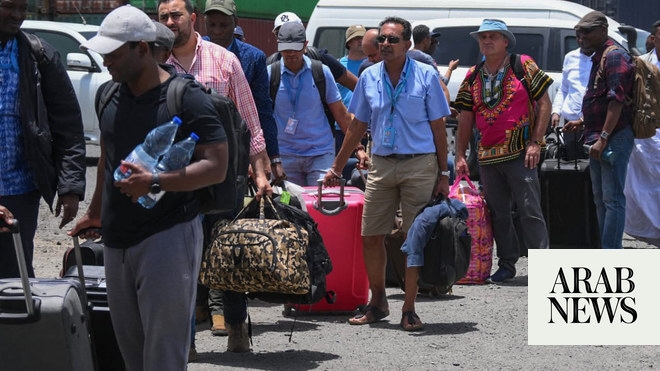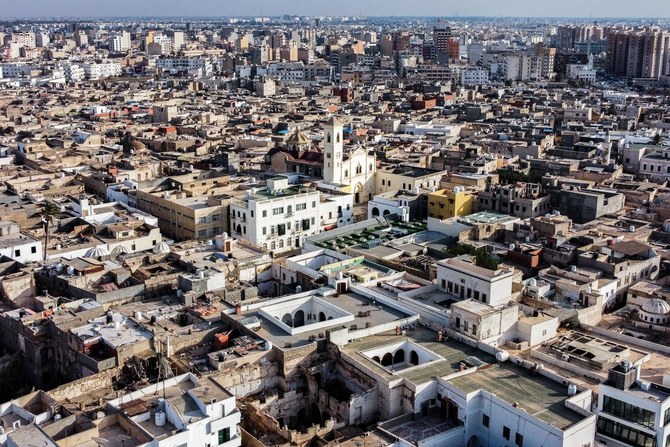
If the stakes were already high in Lebanon, they only became higher after President Michel Aoun delayed consultations with members of parliament on naming a prime minister. Despite intense socioeconomic and political crises, the coronavirus pandemic, and the aftermath of the Beirut port blast, Lebanon has not had a functioning government since Aug. 10.
The resignation of Hassan Diab and his Cabinet has not allayed the frustrations of an increasingly disillusioned public. An attempt at transition to a French-backed Mustafa Adib administration faltered when political parties failed to reach agreement on a non-partisan Cabinet. Aoun then hoped to nominate former prime minister Saad Hariri, who resigned a year ago in response to anti-corruption protests.
There is some merit to this thinking, considering Lebanon’s historic tripartite power balance. Hariri briefly became a serious frontrunner with the support of the two prominent Shiite political parties, Hezbollah and the Amal Movement, but he failed to inspire any enthusiasm from the Christian third of that tripartite; the Free Patriotic Movement and Lebanese Forces were opposed to a new Hariri administration. For a concerned public, it signaled a return to the dreaded intransigence and gridlock. Even pledges to name a government of technocrats failed to convince Hariri’s detractors, not convinced by the former prime minister’s lack of technocratic credentials.
Hariri — surprised by Aoun’s decision to delay consultations — has now withdrawn his candidacy and the whole process has been postponed until Oct. 28. This latest episode underscores a growing, insurmountable divide between those in power and the Lebanese people.
The ruling elites still appear out of touch with the public’s most pressing concerns. Food poverty and declining public health leave Lebanon teetering on the edge of a famine-level disaster. The explosion at Beirut port in August, which cost at least $15 billion worth of damage, has severely diminished Lebanon’s capacity to receive shipments of critical aid, let alone maintain exports at levels sufficient to sustain a depressed economy.
The costs to revitalize Lebanon’s economy could top $60 billion, and the longer it takes to settle a stable, competent government in Beirut, the larger that figure will grow. Unemployment is at 35 percent and climbing, and hyperinflation has sent prices soaring by as much as 120 percent. An inevitable increase in imports and rising inflation results in wage depreciation, destroying wealth and overall confidence — not helped by an unprecedent banking crisis.
It can only be hoped that the frictions that scuttled attempts to form a reformist government will be settled by the new Oct. 28 deadline. Failure to do so will only incite the public to resist working with the leadership altogether, which risks plunging the state into even more chaos.
Hafed Al-Ghwell
It is unsurprising to see the Lebanese take to the streets in an attempt to pull the country back from total collapse. By any measure, Lebanon is already a dysfunctional state, exacerbated by political gridlock, negligence, rampant corruption and general incompetence.
This latest round of musical chairs has left Lebanon primed for even more political squabbling, even with the French at the periphery, seeking to influence the trajectory the country will take. Mustafa Adib’s appointment would have placated French demands for a consensus reformist government focused on implementing urgent structural, economic and political reforms in order to access international aid and restore confidence.
However, Lebanon’s political oligarchs are perturbed by any mention of reform and demands for them to commit to initiatives that erode their power. There is little hope that pressure from the international community will dislodge an entrenched political elite from the levers of power, when the Lebanese themselves have repeatedly tried and failed.
The “French initiative” is under threat as political parties justify their rejection of Adib’s agenda as refusing to bow to external pressure from the overbearing French. Such an argument would be more convincing if there were viable alternatives to navigating Lebanon out of its crises. There are none.
The only way out is implementing comprehensive reforms engineered by a technocratic body, unaffiliated to any political entity and with sufficient authority to carry out such a hefty mandate. Given the gridlock and intransigence in the face of woeful circumstances, the merits of such a caretaker government are obvious, but its establishment runs counter to Lebanon"s consensus-driven political processes. Unfortunately, when the major political parties cannot even rise to the urgency of forming a government, and take comfort in backing politically untenable positions, it does not bode well for the future.
Christian parties are not keen on caretaker governments or band-aid solutions requiring extended debates or compromises. Instead, they have called for elections in a bid to change the names and faces of Lebanon’s legislature. The bet is to have a fresh crop of representatives, more in touch with the plight of the Lebanese and amenable to external initiatives to stabilize the country. The Shiite third — notably Hezbollah and Speaker Nabih Berri’s Amal Movement — leans more toward forming a government but will not support any arrangements that prevent them from nominating individuals to key posts, such as finance minister.
However, calling for snap elections or trying to scrape together an independent government in such an environment will just widen the divide. Elections will simply follow sectarian lines, which risks entrenching the current cast of political entities. A caretaker government with Christian, Sunni and Shiite blessing will not be independent nor sufficiently empowered to carry out critical reforms.
With little room to budge either way, protests or not, Lebanon is accelerating towards a “Lebanzuela” scenario, where a makeshift government and a political elite insulate themselves from the worst of the crises regardless of the citizens’ plight. In turn, the international community will simply keep the taps on aid and donor funds closed. Eventually, any existing funding will simply dry up, resulting in mass emigration, high unemployment, unrest, currency depreciation and runaway hyperinflation. Beyond such a scenario is a replay of the 1975-1990 civil war with belligerents divided along sectarian lines.
The second attempt at naming a prime minister was another chance for Lebanon to seize the moment and aim for something different, knowing that time is running out. It can only be hoped that the frictions that scuttled attempts to form a reformist government will be settled by the new Oct. 28 deadline. Failure to do so will only incite the public to resist working with the leadership altogether, which risks plunging the state into even more chaos.
Hafed Al-Ghwell is a non-resident senior fellow with the Foreign Policy Institute at the John Hopkins University School of Advanced International Studies. He is also senior adviser at the international economic consultancy Maxwell Stamp and at the geopolitical risk advisory firm Oxford Analytica, a member of the Strategic Advisory Solutions International Group in Washington DC and a former adviser to the board of the World Bank Group. Twitter: @HafedAlGhwell
Disclaimer: Views expressed by writers in this section are their own and do not necessarily reflect Arab News" point-of-view












